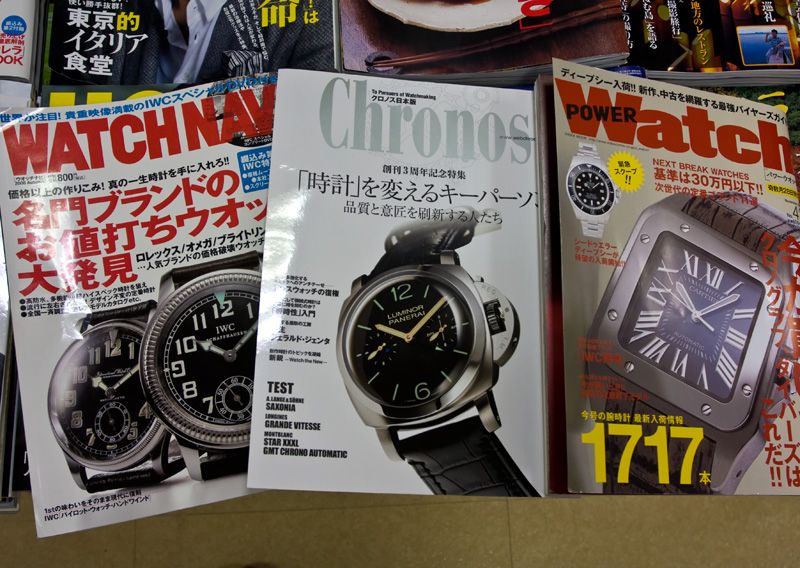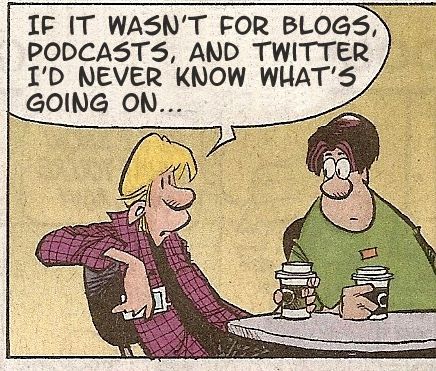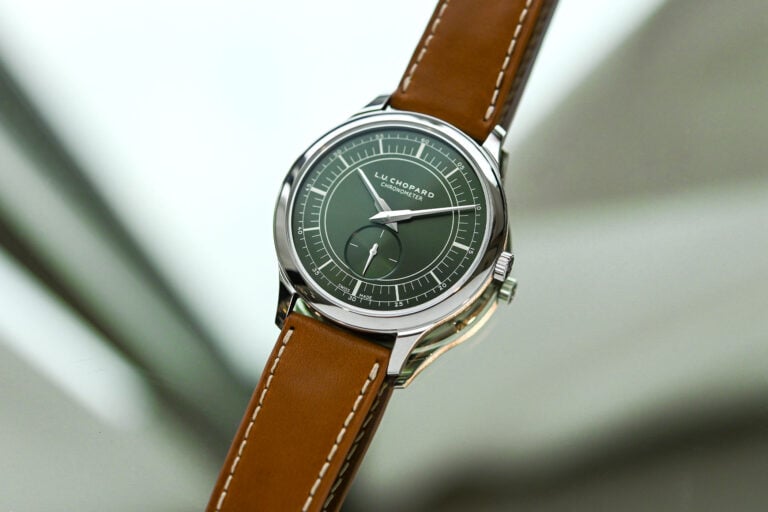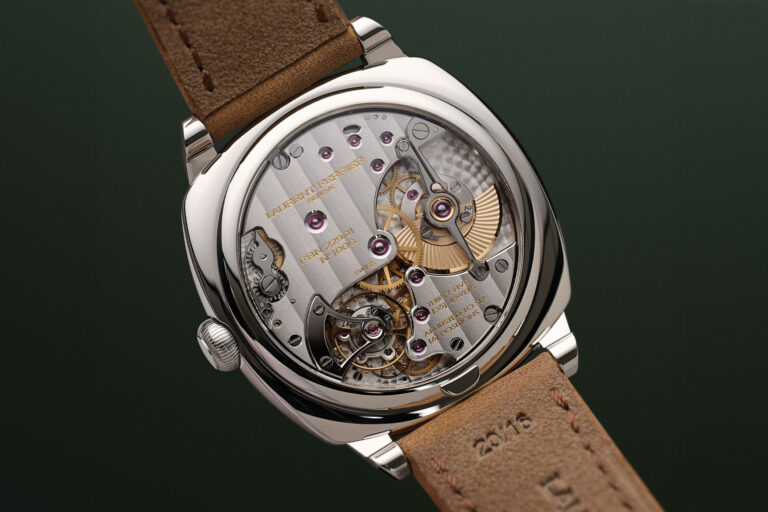Agree or disagree – are internet journalists bad journalists?

A little while ago I read a blog by a Dutch watch journalist and found his post somewhat offensive. The result of one reply was another and another and this all made me think about the statements made and if they are true.
The statement that made the alarm bells go off can be read here and to be specific it was this quote: “Doing your own research and fact finding is a normal way of acting for journalists, but since most people who are writing about watches are no trained journalists, we tend to be the exception.”
(unfortunately the responses to this post, that make the statements much more explicit, have been taken off the website)

In this quotation several statements are made:
- Doing your own fact finding and fact finding is a normal way of acting for journalist, at least trained journalists
- Most people who write about watches are no trained journalist
- Untrained journalists do not do their own research and fact finding
- The magazine owned by this writer does its own research and fact finding and therefore seems to be the exception
I must admit that don’t disagree all four points. I agree with exactly one statement and that is that most people who write about watches (at least online) are no trained journalists, like me. But does this imply we are bad journalists? Does this imply we don’t do our own research, does this also mean we don’t do own fact finding? I can only speak for myself, but I couldn’t agree less with these imputations.

Magazines
When I think of professional and trained journalists I think of watch magazines. Of course most of us, and with ‘us’ I mean ‘watch lovers, aficionados and collectors’, read one or more watch magazines from time to time. Most of the content of watch magazines is written by trained and professional journalists. I say ‘most of the content’ because I also write for a magazine and I know more untrained journalists who do. When I look at magazines it’s obvious that a fair amount of the content does not originate from own research or fact finding. It is simply put together from press releases.
I’m not taking a stand against magazines here. Looking how things go with watch magazines, I doubt they have the means for doing their own research and fact finding. They are in heavy weather, so to say. However the statement “Doing your own research and fact finding is a normal way of acting for journalist” is simply not true, at least not when we’re talking about watch magazines. And just to be very clear, I don’t mean that journalists writing for a watch magazine are bad journalists. I’m simply saying they are dealing with reality and working hard to put together a magazine within the budgetary boundaries.

Bloggers
Now the second questions is if untrained journalists, like bloggers (including me), are bad journalists? Don’t they do their own research and fact finding? I know I do my own research and fact finding and most of the time I use internet for that. It’s easy to find information about older collections, sometimes not available on the brand’s website. There is also much information about technical aspects and historical facts. Internet makes it easy to consult many different sources!
I also visit Baselworld, other watch fairs and I even travel to Switzerland to meet with the brands and to visit the manufactures. During the annual fairs I always meet with other bloggers like Robert-Jan Broer (Fratellowatches), Ben Clymer (Hodinkee), David Chalmers (Calibre11), Gerard Nijenbrinks (Horlogenieuws), Ian Ellery and Olivier Müller (both on behalf of Thewatchlounge). These guys are in my opinion among the best watch bloggers on the internet. However I believe there are more good watch bloggers who are (unfortunately) not always in the position to travel to Switzerland for the annual fairs or other occasions. Just think of Kyle Stults of Perpetuelle who is doing an amazing job and many more. Many of the good bloggers do this because they are passionate about watches and personally I think passion is a good motivator.
On the other hand there are also many bad/horrible/lousy websites, who do nothing more than to copy/paste press releases and there are even many websites who simply copy the original content written by myself and other bloggers! These copycats will do what they do and I try to ignore these type of websites. Luckily there are some good bloggers who write their own unique content. A list of my favorite blogs can be found on the link page.
Conclusion
Do I agree with the statement that these guys, untrained journalists, are bad journalists and don’t do any research and fact finding themselves? Is the fact that someone is a trained journalist a warranty for research, fact finding and original content?
I think I made my statement and I believe there are some excellent journalists, both online and offline, whether they are trained or untrained, who do an amazing job!





16 responses
The person who wrote that article is extremely ignorant. How does he know so much about what other writers are doing? Sounds like he forgot to check his facts. And what does it have to do with the fact that he schedules his own trips to Switzerland?
Ha ha, I would even go further, as at least one name amongst the people you saw at BW11 is a trained journalist, graduated in 2003 or 2004. Guess who !
Anyway, this all debate is fake. I will paraphrase te Duke (Ellington): there are only two kind of writing : good one, and bad one. And actually I don’t care about who write, or if (s)he graduated.
It’s a fact that in a journalism school you learn how to build an article, and, most important, to have an angle. Angle is the most important thing. But once you have your topic and your angle, still, you can completely mess the writing, and then it will ruin all the job done before.
On the contrary, a very very good way of writing can sometimes fool non expert and let think of professional skills the author does not have. But this is not lasting a lifetime.
Endless debate. Not very interesting. It was, at the beginning of the internet, but not any more. And, to conclude, readers don’t give a damn wether the author is trained or not, don’t you think ?
Your very right Oliver and I rather read an article by a non trained journalist, who knows where he talking about,
then a very well written story, that does’nt tell me any news, by an experienced journalist.
Magazines that fear the Blogger community, certainly must have a reason. Lack of passion?
It is going to be interesting to see how things pan out with the various blogs. One important thing to really try to understand – the term “journalist” can be very misleading. Several folks who have published articles in watch magazines have no further training beyond an undergraduate degree, and perhaps a foreign language major such as French or German. This in and of itself does not make that person a journalist. However, the quality of their coverage does. Magnus and Frank are well respected for their writing and commitment. You will also note that quite a few writers from the “PRESS” are now blogging, so the very people who are crying foul about bloggers are suddenly joining in. Time will tell, but I think that those who provide real content, real quality, they will be the real watch media of the coming years.
This blogger/journalist, trained/untrained nonsense is simply tiresome at best – I think we’ve moved beyond this crap haven’t we? The guy or gal who wrote this stuff is simply clueless – and probably trained academically as well 🙂
There is no more “journalism” – people need to wake up. What there are are people who write about what they know and love – some have more influence than others – You can’t train someone to become trustworthy over time – you either have it or not. You gain it by being consistent, fair and honest – and well informed – It’s all about word of mouth. This whole debate is DOA.
My 2 cents of course 😉
Hey btw you should add Meehna Goldsmith to your list of bloggers – she deserves it IMHO.
It’s all really sad, actually, that people are even still arguing about this.
So many people are still confusing the medium, the mode of publication, of communicating the text, with the journalist/ blogger/ writer behind it.
There are some news journalists who have had no training but who are some of the most highly respected people in their industry. They have reached that point through a combination of factors, but ultimately because they are good journalists who check facts, who communicate well, who have established credibility etc.
I love watches, and I hope that this comes through when I blog about them.
So many journalists of many ilk publish in newspapers, magazines and on blogs. It is an artificial distinction nowadays.
There is good writing and bad writing. Whether this is online or not is irrelevant IMHO.
I do not agree that internet journalists are bad journalists. As said from previous comments, there are just good or bad articles regardless of medium or education of the author – this I totally agree. The internet has been the top and fastest information sources that anyone can use, and the easiest too to produce. And with that, readers must be very cautious in trusting or believing anything they read off the net. Same goes to with Watch Blogs. If have read on one blog about review of a watch or so, you may want to compare with what other blogs or articles have to say. Research research research. I am also an untrained journalist, as engineering is my profession. But it is from the combination of blogs and magazines from trained and untrained journalists that I have acquired so much information about my passion on horology.
I don´t know if we need any more ´agrees´ to make a point, but couldn´t agree more with you, Frank. As mentioned on Facebook I think we have too many watch magazines, I´d rather have a few more good blogs. Which I can access anywhere in the world, which I can ignore if I don´t agree or don´t trust the author to have any significant knowledge, etc. I don´t tend to ask journalists (on watches or whatever) for their papers, nor can I and do I ask this to bloggers. As a friend of mine once said after an internship at the most respected newspaper in our country: you tend to believe most things in the good newspapers, until they write something about a topic you´re well informed on and then you notice these guys to be human after all as well. Yes, only trained journalists there…
Most stuff written above is as true as it can be. I love the statement by Geo “Magazines that fear the Blogger community, certainly must have a reason. Lack of passion?”. Lack of passion is what makes the difference between a good article and a bad article, whether it is on-line or print. I am no professional journalist and there is a lot that can be said about my English, but I do have passion for watches and my only goal is to make people enthusiastic on the subject. Although there is some money involved, it is way too little to make a living and covers for the costs I have to make through-out the year for this passion. I really think money and marketing are ruining a lot of magazines (and websites for that matter). You can’t discuss a brand without thinking of the consequences that it has when they advertise with you. A lot of magazines (at least some of the Dutch ones – we have a hand full of them – that can’t survive on subscriptions alone) are obviously copy/pasting press releases and have editors aboard with no feeling for the subject.
Ergo: Passion for watches is what makes the difference
Hey Frank,
Training? I don’t need no stinking training! I’m just a lowly and disruptive watch blogger. hahaha
A bit more seriously, good topic, and thanks for the mention. I see that the battle between “journalists” and “bloggers” is alive and well! As for me, I proudly view myself as a Blogger, not a journalist. Further, I don’t really care about others who think they are the high and mighty arbiters of quality writing, because I know this is not the case. I do research and fact finding every day, for every article I publish! Also, I read every watch blog out there and I know that there are many of us who take great care to write thoughtful, factual articles.
So I say, may the best content win!
Onward and Upward!
Kyle
I can very well imagine that it’s not a comfortable situation for many ‘professional’ journalists, feeling that they’re loosing ground to bloggers and non-professional journalists.
Press officers of watch brands nowadays don’t seem to bother much about if an article is written by a professional journalist or a watch aficionado and passionate blogger. And that’s very understandable. As long as the content is honest and reflecting the truth, the only thing which counts are the results of the article, not who wrote it. Journalism is no goal for them, it’s just a tool to get to their goal.
The statement in the mentioned article “Doing your own research and fact finding is a normal way of acting for journalists, but since most people who are writing about watches are no trained journalists, we tend to be the exception.” is bold and certainly doesn’t reflect the reality in my opinion. I personally know a lot non-professional journalists and bloggers who do their own research and fact finding.
The statement is a cheap (and even a dishonest) way to tell you’re superior to others, by putting bloggers and non-professional journalists in a bad day light. Trying watch brands to neglect anyone else but you as a professional journalist. Just as it was in the old days when there were no bloggers. When there was no internet, and probably no electricity 😉 But today isn’t the old days anymore…
As many others, my reaction to the posting we’re discussing here was taken away and I’m blocked now from further reacting. I made a screen shot just after posting however, which can be seen here: http://i58.photobucket.com/albums/g260/horlogenieuws/0024.jpg
End of last year we had a more or less equal issue as well, which was published in the Financial Times and discussed on The Watchlounge. If you didn’t read it then, you can do so now by clicking here: http://www.in2watches.com/the-blogosphere/
http://i58.photobucket.com/albums/g260/horlogenieuws/temp/block.jpg
😉
Most watchmagazines can’t be honest so in a way they don’t have really honest journalists. Why? Simple because they rely on advertisements from the big watch companies. If they say their watch is shit how can they earn money? In a way those magazines are read to see shiny pictures and for a honest opinion you surf a forum like watchuseek. Do you ever see them cover a chinese watchbrand? Hardly, simple because the swiss brands wouldn’t appreciate it and the chinese watchbrands don’t have big advertising money. Maybe the real big watchmagazines like watchtime and iwmagazine would do that because they are big enough to do so once in a while. The smaller the magazine… the more the they depend on those swiss brands.
It’s not the medium, it’s the messenger. Forget blogger/print, jounalist (formal training?) vs. non. . . I see great and lousy print coverage of watches and great and lousy online coverage. What I see universally, both on blogs and in print, is some degree of muting of opinion due to commercial interests (which, let’s face it, has been around as long as there have been editors and advertisers) as well as a certain sacrifice of quality to constraints of time and money. How much is sacrificed depends on the blog or the magazine. Bloggers don’t have a monopoly on editorial independence and integrity and magazines don’t have a monopoly on depth of coverage or solidity of research, so why don’t we just recognize that the vast majority of consumer journalism is crap for various reasons and all do our best not to be part of that majority 😉 .
That’s a respond I can fully relate to and agree with. Thanx Jack, wise words.